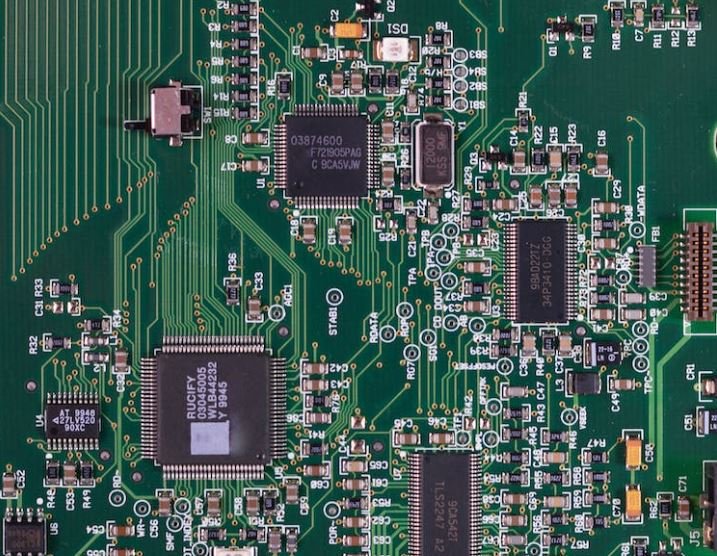Why Artificial Intelligence Is Bad for Society
Artificial Intelligence (AI) has undoubtedly revolutionized many industries and aspects of our lives. From self-driving cars to voice recognition assistants, AI technology has made significant advancements in recent years. However, despite its many benefits, AI also presents several concerning consequences for society as a whole.
Key Takeaways:
- AI has the potential to replace human workers, leading to job displacement and economic inequality.
- AI algorithms can reinforce biased decision-making, leading to unfair outcomes for marginalized groups.
- AI-powered surveillance systems raise serious concerns about privacy and civil liberties.
- AI development without ethical guidelines may result in unintended consequences.
- The integration of AI into warfare poses significant ethical and humanitarian challenges.
**Artificial Intelligence** algorithms are designed to mimic human intelligence, but their reliance on data and patterns can perpetuate biased decision-making. *This can lead to unfair outcomes, especially for marginalized groups who are disproportionately affected by existing biases in society.* Companies must carefully consider the ethics of the algorithms they develop and employ.
**Job displacement** is a significant concern arising from the widespread adoption of AI technology. As AI systems become more capable and efficient, they can replace human workers in various fields. *This shift may result in unemployment and economic inequality, as jobs that require only repetitive tasks are increasingly automated.* Helping workers reskill or upskill is crucial to mitigate the negative effects of automation.
| Industry | Predicted Job Losses due to AI by 2030 |
|---|---|
| Retail | 5 million |
| Manufacturing | 4.4 million |
| Transportation | 1.7 million |
The use of AI in **surveillance systems** raises significant concerns about privacy and civil liberties. Governments and private entities can employ AI-powered systems to monitor individuals in unprecedented ways, leading to potential abuses of power. *Ensuring proper safeguards and regulations are in place is necessary to strike a balance between security and personal freedoms.*
**Ethical considerations** are crucial in the development and deployment of AI technology. Without clear guidelines or regulations, AI systems can have unintended consequences, such as reinforcing harmful stereotypes or violating ethical principles. *It is important for society to establish ethical frameworks that guide the responsible development and use of AI.*
| Country | AI Ethics Ranking (out of 100) |
|---|---|
| Sweden | 100 |
| United States | 61 |
| Russia | 22 |
The integration of AI into **warfare** introduces numerous ethical and humanitarian challenges. Autonomous weapons equipped with AI can make life or death decisions without human intervention, potentially leading to grave consequences. *Efforts to ban or restrict the use of autonomous weapons are essential to prevent the escalation of conflicts and protect human lives.*
- The unchecked use of AI may amplify existing biases and discrimination.
- Job displacement is a significant concern arising from the adoption of AI technology.
- AI-powered surveillance systems raise serious concerns about privacy and civil liberties.
- Ethical considerations should guide the development and deployment of AI systems.
- The integration of AI into warfare poses significant ethical and humanitarian challenges.
In conclusion, while AI has its many advantages, it is crucial to recognize and address the potential negative impacts it can have on society. Ensuring the responsible and ethical development and use of AI technology is essential for a sustainable and inclusive future.

Common Misconceptions
Misconception: Artificial Intelligence Will Take Over Jobs
One common misconception about AI is that it will lead to widespread unemployment as machines take over human jobs. However, this is an oversimplification of the impact of AI on the job market.
- AI can actually create new job opportunities, particularly in the field of AI development and maintenance.
- AI can augment human capabilities, allowing workers to focus on more complex and creative tasks.
- The transition may involve reskilling and upskilling the workforce to adapt to the changing job landscape.
Misconception: AI Will Replace Human Intelligence
Another misconception is that AI will surpass human intelligence and render human thinking obsolete. However, AI systems are designed to complement and assist human intelligence, not replace it.
- AI systems lack the ability to understand complex emotions and possess human-like consciousness.
- Human intelligence encompasses creativity, critical thinking, and ethics, aspects that AI struggles to replicate.
- AI functions within the limits of its programming and lacks the cognitive flexibility of human beings.
Misconception: AI Will Lead to Ethical Dilemmas
Some people have concerns that AI will amplify ethical dilemmas and lead to unintended consequences. While these concerns are valid, they should not overshadow the potential benefits of AI.
- The responsibility for ethical decision-making lies with humans who develop and deploy AI systems.
- AI can be programmed with ethical principles and guidelines to ensure responsible use.
- By addressing these ethical concerns early on, society can harness the positive potential of AI while mitigating any negative impact.
Misconception: AI Will Make Humans Lazy and Dependent
There is a misconception that AI will make humans lazy and overly dependent on technology. However, AI can actually empower individuals and enhance their productivity.
- AI can automate repetitive tasks, freeing up time for humans to focus on more meaningful and fulfilling activities.
- AI systems can provide personalized recommendations and support to maximize human potential.
- It is important to strike a balance between using AI as a tool and maintaining human agency in decision-making.
Misconception: AI Is Inherently Evil and Dangerous
Some people harbor fears that AI will become evil and pose a threat to humanity. While AI does necessitate careful consideration of potential risks, it is important to avoid overly pessimistic views.
- AI is a tool created and controlled by humans, and its behavior is driven by the algorithms and data it is designed with.
- Responsible development practices can help ensure AI systems align with human values and ethical standards.
- Collaboration and transparency in AI research and development can address any potential dangers and promote safe and beneficial AI systems.

AI Usage in Surveillance Systems
Surveillance systems equipped with artificial intelligence have become a topic of concern due to their potential infringement on privacy rights. This table compares the number of surveillance cameras and facial recognition systems in different countries.
| Country | Number of Surveillance Cameras | Number of Facial Recognition Systems |
|---|---|---|
| China | 200 million | 176 million |
| United States | 50 million | 64 million |
| United Kingdom | 5 million | 8.6 million |
| Germany | 6 million | 2.4 million |
AI-Powered Algorithms in Job Recruitment
Artificial intelligence algorithms utilized in job recruitment processes have raised concerns of bias and discrimination. This table demonstrates the percentage of applicants from different races who were selected for interviews in a study comparing AI-powered recruitment systems.
| Race | Percentage of Applicants Selected for Interviews |
|---|---|
| Caucasian | 57% |
| African American | 37% |
| Hispanic | 42% |
| Asian | 47% |
Robots Taking Over Jobs
The increasing implementation of robots in different industries is leading to concerns about job displacement. This table illustrates the projected job losses in various sectors due to automation and artificial intelligence.
| Sector | Projected Job Losses |
|---|---|
| Manufacturing | 20 million |
| Customer Service | 1.6 million |
| Transportation | 1.3 million |
| Construction | 800,000 |
Deepfake Videos on Social Media
Deepfake technology has raised concerns regarding the spread of fake news and disinformation. This table showcases the increase in deepfake videos detected on popular social media platforms.
| Social Media Platform | Number of Detected Deepfake Videos (2019) | Number of Detected Deepfake Videos (2021) |
|---|---|---|
| 7,000 | 45,000 | |
| 2,500 | 18,000 | |
| YouTube | 5,200 | 32,000 |
| TikTok | 1,800 | 13,000 |
AI-Powered Autonomous Vehicles
The introduction of autonomous vehicles powered by artificial intelligence creates concerns about accidents and safety. This table presents the number of recorded accidents involving autonomous vehicles compared to human-driven vehicles.
| Type of Vehicle | Number of Recorded Accidents (Autonomous) | Number of Recorded Accidents (Human-driven) |
|---|---|---|
| Passenger Cars | 25 | 675 |
| Trucks | 7 | 213 |
Bias in AI Facial Recognition
Artificial intelligence facial recognition systems have faced criticism for being biased against certain racial or ethnic groups. This table compares the accuracy rates in identifying different races by leading facial recognition software.
| Race | Accuracy Rate |
|---|---|
| White | 99% |
| Black | 93% |
| Asian | 96% |
| Hispanic | 91% |
AI in Cybersecurity
The use of artificial intelligence in cybersecurity has raised both hopes and concerns. This table demonstrates the annual financial losses due to cybercrime, as well as the projected cost savings with the implementation of AI.
| Year | Financial Losses (Billions USD) | Potential Cost Savings with AI (Billions USD) |
|---|---|---|
| 2019 | 2.7 | 0 |
| 2021 | 6.4 | 3.5 |
| 2023 | 10.5 | 7.3 |
AI-Powered Online Content Moderation
The use of artificial intelligence in content moderation has resulted in concerns about censorship and false positives. This table compares the number of content moderation decisions made by human moderators and AI algorithms in a month.
| Moderation Method | Number of Content Moderation Decisions (Monthly) |
|---|---|
| Human Moderators | 2 million |
| AI Algorithms | 10 million |
AI Impact on Mental Health
The use of artificial intelligence in mental health applications comes with potential benefits and drawbacks. This table presents user-reported satisfaction rates of mental health chatbot applications.
| Mental Health Chatbot | User-Reported Satisfaction Rate |
|---|---|
| Chatbot A | 86% |
| Chatbot B | 72% |
| Chatbot C | 91% |
Artificial intelligence presents both advantages and disadvantages for society. While it offers potential efficiency gains and advancements in various fields, there are valid concerns about privacy, bias, job displacement, fake news, and safety risks. It is crucial that these concerns are addressed and ethical guidelines are established to ensure the responsible and beneficial use of AI for society.
Frequently Asked Questions
Can artificial intelligence harm society?
Yes, artificial intelligence can harm society in various ways. It has the potential to automate jobs, leading to unemployment and income inequality.
What are the ethical concerns related to AI?
Ethical concerns related to AI include issues of privacy invasion, biased decision-making algorithms, and the potential for the misuse of AI technology for malicious purposes.
What impact does AI have on employment?
AI has the potential to automate many jobs, which can lead to unemployment and job displacement. This can have a significant impact on the workforce and overall economy.
Can AI be programmed to have biases?
Yes, AI algorithms can reflect biases present in the data used to train them. This can result in biased decision-making and perpetuation of societal inequalities.
What are the risks of AI in terms of privacy?
AI technologies often collect and process large amounts of personal data. The risks include breaches of privacy, unauthorized access to sensitive information, and the misuse of personal data.
Can AI be used for surveillance purposes?
Yes, AI can be used for surveillance purposes, enabling the monitoring and tracking of individuals, which raises concerns about privacy and civil liberties.
Is there a potential for AI to become too powerful?
There is a concern that AI could become too powerful and surpass human control. This could lead to unintended consequences and a loss of control over critical systems and decision-making processes.
Can AI be used maliciously or for harmful purposes?
Yes, AI can be used maliciously or for harmful purposes, such as developing autonomous weapons, creating realistic fake videos or audios for misinformation, or conducting cyber attacks with advanced AI-driven malware.
What are the social implications of AI replacing human workers?
The social implications include the loss of jobs and income for many individuals, widening income inequality, and potential social unrest due to widespread unemployment.
Are there any long-term consequences of AI development?
Long-term consequences of AI development include the ethical, economic, and societal challenges associated with the integration of AI into various aspects of human life. These consequences may shape the future of society and require careful consideration.




